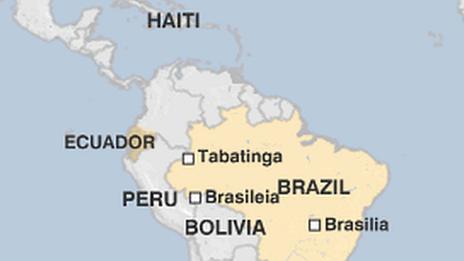Brazil: The 'El Dorado' for international migrants
- Published
More than 100 people a day are arriving at the holding centre in Acre
The jungle state of Acre is a long way from anywhere. Tucked into the north-western corner of Brazil, it is closer to the big towns of eastern Bolivia and southern Peru than it is to the industrial heartland of southern Brazil.
Yet it is through here that many migrants looking for a better life or escaping persecution in their own countries choose to enter Brazil.
On the edge of town, where the paved road runs out and where the jungle meets the last few buildings, several times a day small convoys of mini-vans come down the track and people get out.
Like new arrivals anywhere, they look slightly bewildered, trying to get an immediate bearing on their surroundings. But they have little need to worry.
Informal understanding
For the time being, this is quite possibly one of the most welcoming places on the planet for a migrant or refugee to arrive.
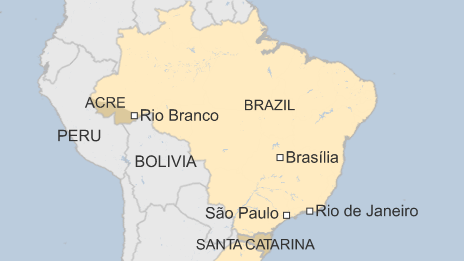
The people arriving here at the state migration centre in the town of Rio Branco are mainly from Haiti, Central America, Senegal and beyond.
While many will claim asylum as refugees they are nearly all economic migrants and are recognised as such.
It started as an informal, bilateral understanding between Brazil and Haiti - after Brazil's commitment to Haiti following the earthquake of 2010.
Since then word spread and now many more of the people arriving here are coming from as far afield as West Africa. Some of them, like Matthew from Nigeria, have gone through an awful lot to get here.
'Forced to convert'
"I came here to escape [the Islamist militant group] Boko Haram and the Muslim-Christian fighting in [the Nigerian town of] Jos," Matthew tells me, as he nervously holds on to his Bible.
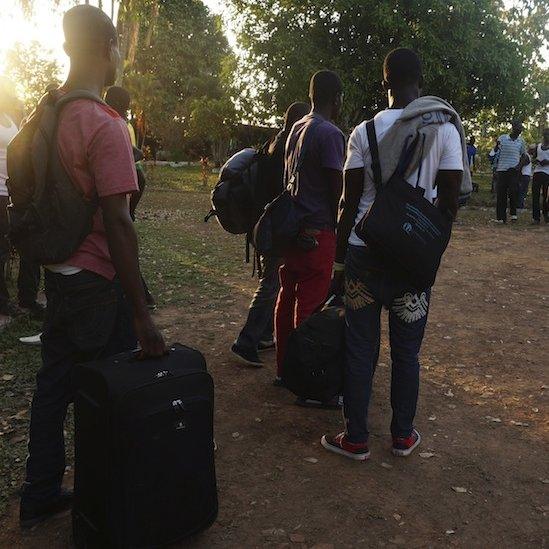
Tired and bewildered new arrivals come to the Rio Branco migration centre every day
"My father was forced to convert but my mother was killed in our church. As for my sister, they took her and I've not seen her for a long time."
Matthew says that he arrived here through Ecuador and Peru. The journey is long but thankfully not as arduous as that faced by African migrants fleeing through the Sahara towards Europe.
More than 100 people a day are arriving at this holding centre just a couple of hours drive from the Bolivian border.
Spanish, French, Patois - the languages and dialects are sometimes difficult to pick out. Everyone is processed, fed and given a mattress to sleep on.
Among the migrants I spoke to was Jenny, from the Dominican Republic.
"Brazil's well known as the place to come - the Haitians told us that," says Jenny, who has a pretty sure idea of what she plans to do next, now that she has made it to Brazil.
"I'm going to the south to get a job in Santa Catarina. I already have friends down there."
Unsustainable levels
But, despite the smiles and optimism Jenny has made sacrifices. "I've got two kids, my mum and dad back home. It was hard to leave them but I have to earn money to send home."
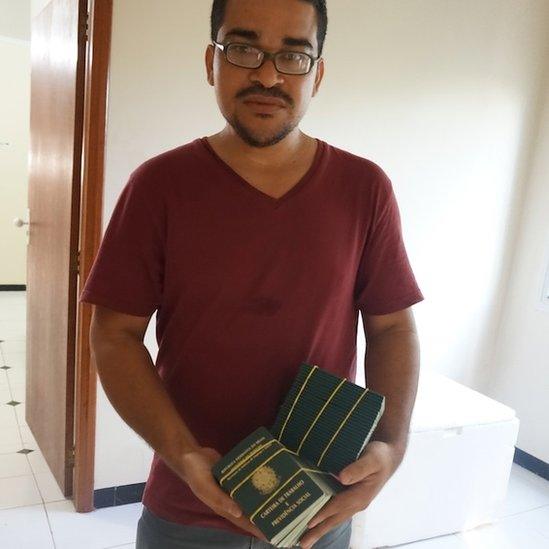
For those who do receive visas, discrimination and a slowing economy will present challenges
Brazil's policy so far has been to allow most if not all of the migrants and refugees in - partly because the borders here are so porous and there is a demand for migrant labour as the economy has boomed in recent years.
Some residents and officials in the state of Acre are concerned that the constant influx of refuges will eventually reach unsustainable levels. Some even describe it as a "crisis".
However, the Brazilian government does not generally talk about a refugee "problem", even though in recent years more than 20,000 migrants from Haiti alone have come here.
According to official figures less than 1% of the population is made up of migrants.
Ebola concerns
Waldeci Nicacio de Lima works as a human rights co-ordinator here in Acre.
"There's always been work for them because they'll accept the jobs Brazilians don't want," says the official. "Word has spread and for the migrants it's like a kind of 'El Dorado'."
Nicacio de Lima also dismisses out of hand recent reports in some Brazilian newspapers that there were concerns about Ebola coming into Brazil through the camp.
They were not being complacent, he said, but no-one was being sent away because of their nationality and they were confident that nobody had arrived from an Ebola-affected area.
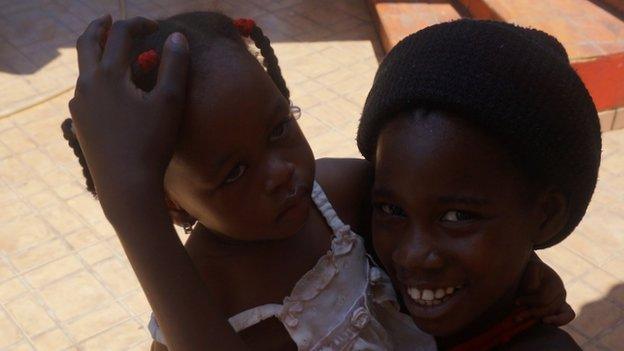
Conditions at Rio Branco are immeasurably better than at other migrant camps
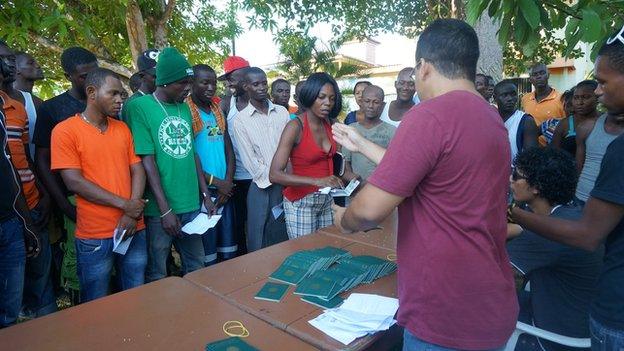
Many more of the people arriving at Rio Branco come from places as far afield as West Africa
There is some tension here between the different nationalities and they all keep to their own parts of the centre but conditions are immeasurably better than at other migrant camp I have seen.
As the day progresses, everybody is anxiously waiting for one thing - the appearance of Brazilian work permits, dozens of them.
An orderly but excited group of people crowd around a small table set out in the shade of a huge tree as the names are read out.
French sounding names from Haiti, a few Dominicans and several Senegalese are among those the Brazilian official struggles to get right, but no one seems to care.
Less than two weeks after arriving many of these migrants now have extensive rights to live and work in Brazil, having secured temporary visas for a year.
The lucky ones have few words but the smiles on their faces say it all.
Most of them are planning to head south, in particular to Rio Grande do Sul and Santa Catarina where there is still - reportedly - plenty of work for them, in agriculture and in factories.
Although the work is invariably poorly paid and unstable, many of the people leaving here already have friends and family members in the south.
Those whose names were not called out return to playing football or sitting in the shade. For those moving on, discrimination and a slowing economy will present challenges.
As dusk falls over the jungle new migrants still arrive, just as bewildered and bleary-eyed after their long journey as the group who arrived that morning. And this will continue as long as Brazil makes them feel welcome.
- Published13 October 2014

- Published8 September 2014

- Published29 August 2014
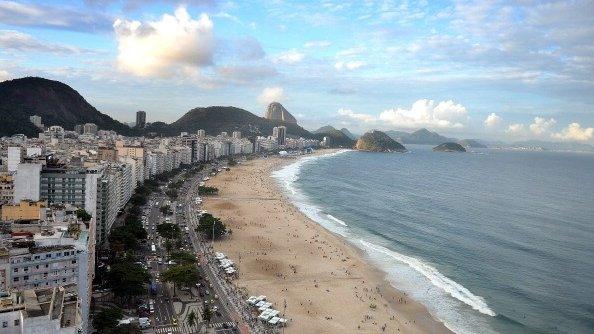
- Published11 April 2013
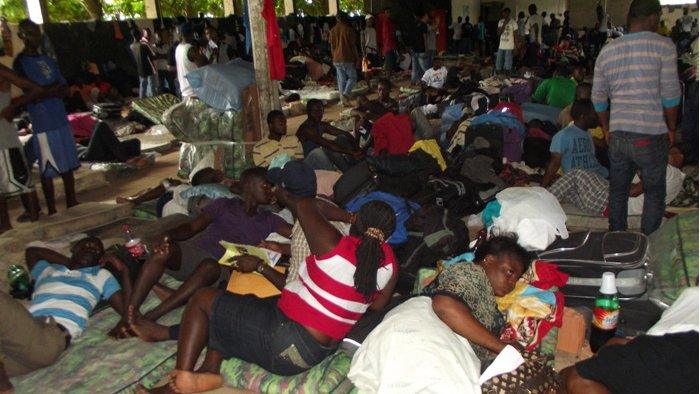
- Published2 June 2023
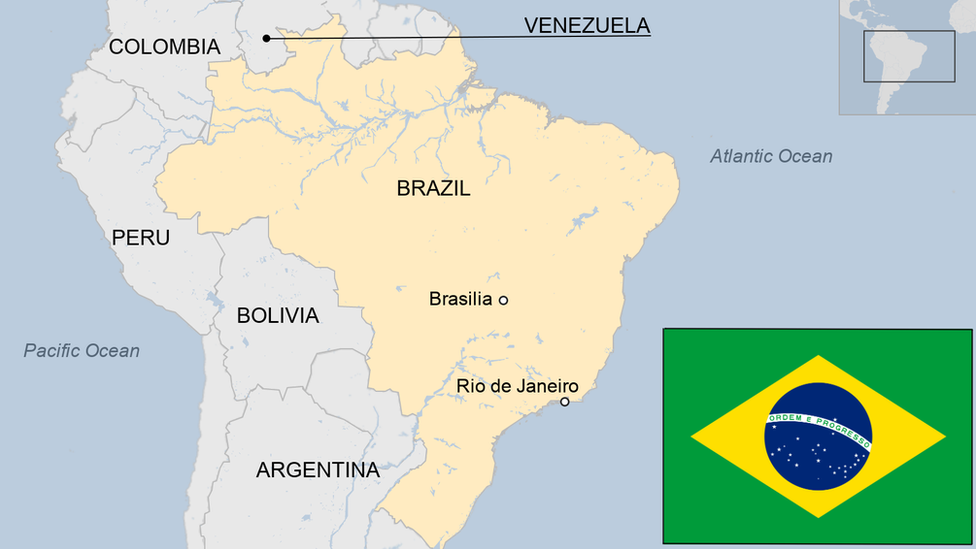
- Published17 April 2013
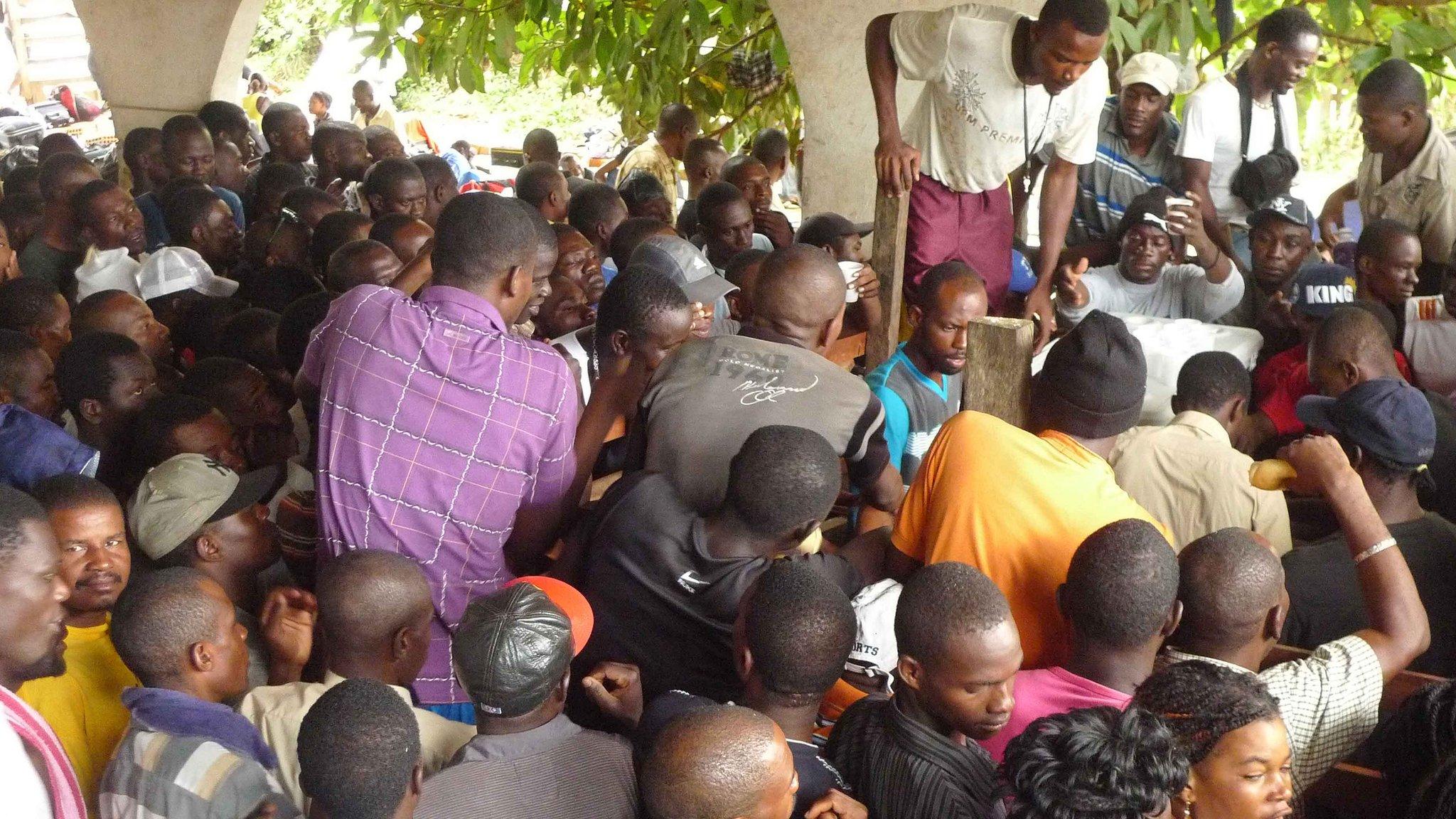
- Published15 April 2013
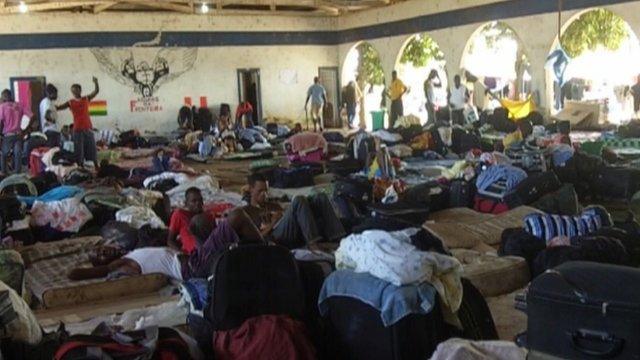
- Published11 January 2012
